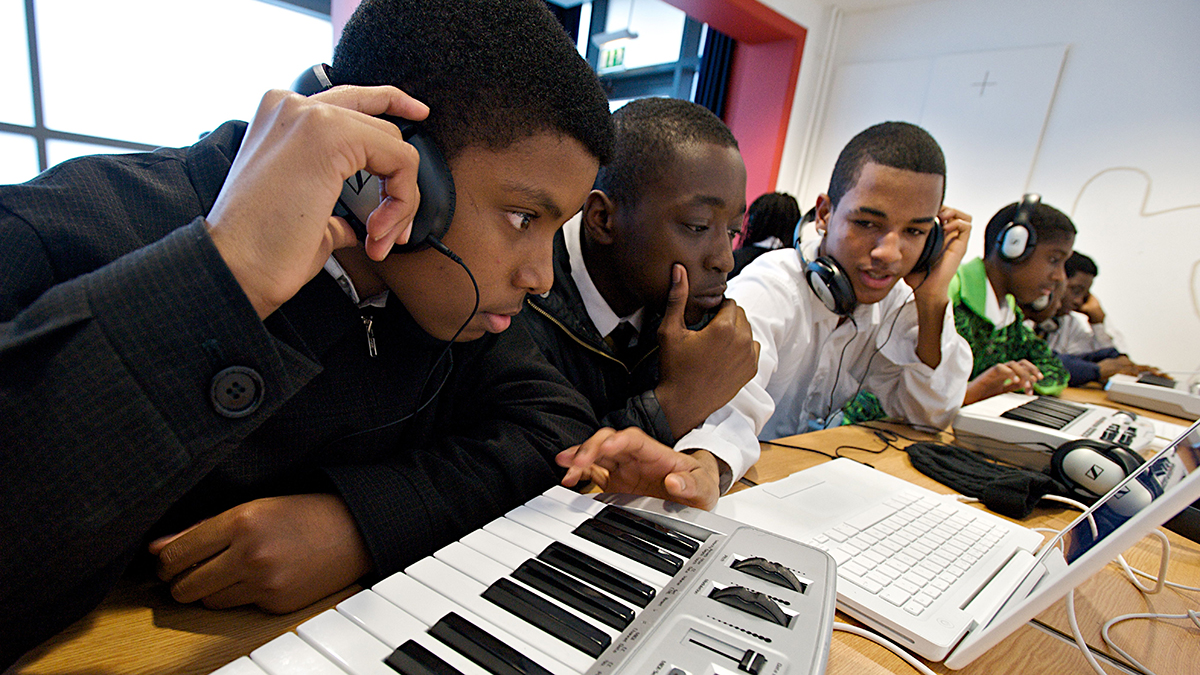Can 'ear training' make you a better musician and producer?
Does taking the formal approach to listening skill improvement really make a difference?

Want all the hottest music and gear news, reviews, deals, features and more, direct to your inbox? Sign up here.
You are now subscribed
Your newsletter sign-up was successful
With numerous 'ear training' systems and courses now available online, anyone can - in theory - take their listening abilities to a whole new level in order to make better decisions at every stage of the composition and mixing processes. But do these innovative educational resources actually result in better tracks when all's said and done?
We put exactly that question to five industry figureheads…
SoundGym
"Producing and mixing music are complex missions. Audio ear training can break this complexity into simple, distinct abilities that can be trained and improved. Once you've mastered these core skills, you'll perform faster and make more accurate decisions while producing, recording and mixing.
"At SoundGym, we also give members an indication of their progress and ability for core listening skills like frequency, gain and compression detection, so each member will know what they're good at and where they can get better. Ear training is not a replacement for experimenting or learning while making music, but it can accelerate the learning process and make it much more effective."
Noam Gingold
iZotope
"Ear training software can be enormously helpful in developing a strong connection between the technical language of music production and musical sounds. In building this muscle, people can spend more time actually effecting the changes and getting the results they want to hear rather than trying to understand how to use the tools. It also helps you to communicate clearly with others when you're collaborating on musical productions."
Jonathan Wyner
Want all the hottest music and gear news, reviews, deals, features and more, direct to your inbox? Sign up here.
appsolute (Better Ears)
"A few people have innately perfect hearing; all others need to train their ears. With the help of ear training, you're able to identify intervals, pitches, chords, chord progressions and rhythms without thinking about it. You can understand the music you hear. In jazz, pop and rock music, ear training is essential because the music is often improvised and performed primarily by ear. Ear training develops greater musicality, therefore music is more fun. It separates a good musician from a great one."
Holger Meyer
dev4phone (Ear Trainer and Note Trainer)
"There are musicians who, from a whistled tune or vague idea, quite quickly create beautiful, neatly produced music. Chances are they have a good musical ear. You can train this ability and shorten the path between an idea and actual music.
"Ear training software brings ear training within the reach of everyone. Without breaking the bank, you have a teacher with infinite patience that has time to practice whenever you have - even on the bus. No grand piano needed."
Magnus Thoor
EarMaster
"Having good aural skills is essential to being a great musician or producer. You can be an excellent technician, be able to shred away on your guitar at 300bpm, or have the most elaborate mixing chains, but you won't be able to use those skills to their full potential without building up your aural skills. Ear training can seem tedious compared to more creative activities, but it's also some of the most rewarding time you'll spend on improving your musical skills. Just do it: it'll pay off tenfold."
Quentin Nicollet


Computer Music magazine is the world’s best selling publication dedicated solely to making great music with your Mac or PC computer. Each issue it brings its lucky readers the best in cutting-edge tutorials, need-to-know, expert software reviews and even all the tools you actually need to make great music today, courtesy of our legendary CM Plugin Suite.
